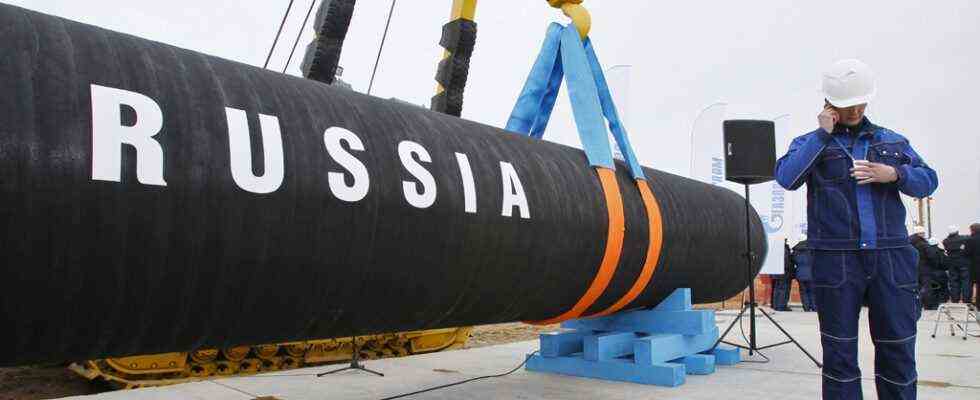As of: 09/24/2021 12:48 p.m.
Europe’s gas storage facilities are currently pretty empty. Internationally, politicians accuse Russia of deliberate shortages – as leverage to put the Nord Stream 2 pipeline into operation. Moscow denies it.
Gas deliveries to Europe are a complicated equation, Russian foreign policy leader Alexei Pushkov recently put it in a nutshell. In fact, there are far more variables involved than just supply and demand, markets and quantities. It’s also about national interests, about politics – and a lot of opinion.
The critics of the Baltic Sea pipeline Nord Stream 2 see the current discussion about Russian gas as confirmation that the Gazprom group is abusing its market power in Europe. Above all the political leadership of Ukraine, which is dependent on the lucrative income from the transit business.
Kremlin: All supply contracts are being fulfilled
In order to secure the income, the head of the Ukrainian energy company Naftogaz, Yuri Witrenko, is therefore urging that European companies take over the gas at the Russian-Ukrainian border and handle the transit via Ukraine.
“That is very easy to solve. And that will immediately lower prices and solve the problem with the deficit,” says Witrenko. “And then we would have less reason to say that Gazprom is currently using gas as a geopolitical weapon.”
An accusation that the Kremlin rejects. Gazprom, Kremlin spokesman Dmitri Peskov emphasizes, is fulfilling – even if some claim otherwise – all existing supply contracts. “Our company, the Russian side, fulfills all contractual obligations towards the EU and consumers to 100 percent and even more,” said Peskow.
Gas prices in Europe have risen sharply
The federal government also confirms that the current gas supply contract will be complied with. According to independent experts, Gazprom supplied 40 percent more gas than in the same period last year. Russian gas is currently even cheaper than gas on the spot market, says Oliver Hermes, chief executive of the Eastern Committee of German Business.
According to experts, there are various reasons why prices have skyrocketed on the wholesale markets: On the one hand, less gas was produced in Europe, for example in the Netherlands. On the other hand, the demand for liquefied gas has risen sharply, especially in Asia.
Because more is paid there, it is also delivered there, explains Alexej Gromow from the Institute for Energy and Finance – and points to Washington: “And no one is therefore accusing the USA of abandoning their European partners and not bringing their liquid gas to Europe sell, “said Gromow.
Pragmatism as a basis for negotiations
From his point of view, it is logical that Russia does not want to transport the additional quantities it needs to Europe via the Ukraine, but rather via the new Nord Stream pipeline: “We have built the pipe, we have invested in it. Now we want it as quickly as possible put into operation. ” Business is business.
It is also clear, however, that you cannot go a step further with mutual accusations, says Gromow on Russian television and urges everyone involved to be more pragmatic: Europe must move on the question of the certification of Nord Stream 2.
“Ukraine should cut transit fees at least for a while so that it is lucrative for Gazprom to pump additional volume through the Ukrainian pipelines in the coming months,” says Gromov. And Russia should bring itself to provide additional volume for Europe. That could then also be the basis for further negotiations.
Markets, quantities, opinions – the dispute over Russian gas
Christina Nagel, ARD Moscow, 9/23/2021 5:47 p.m.

